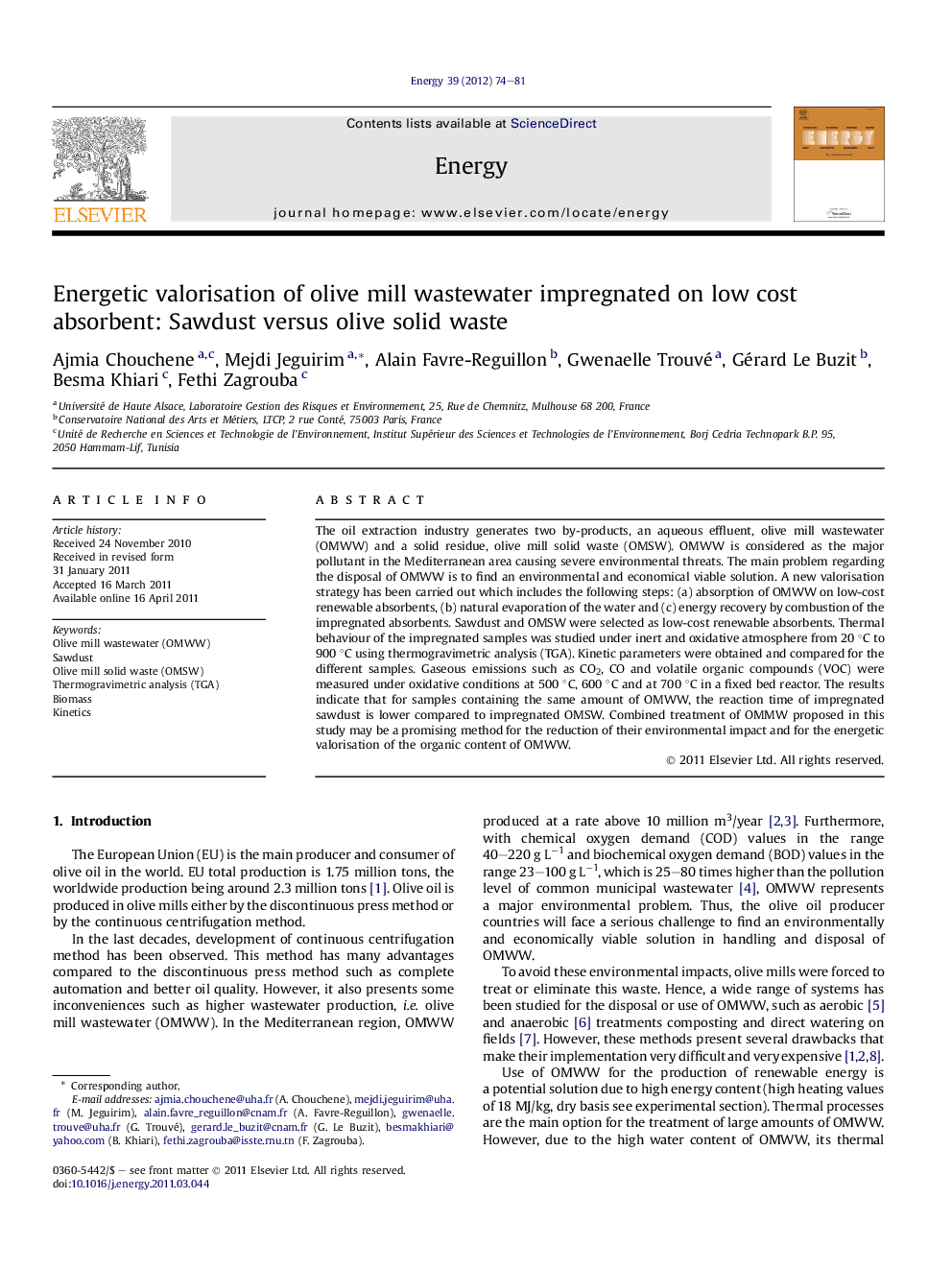| Article ID | Journal | Published Year | Pages | File Type |
|---|---|---|---|---|
| 1734324 | Energy | 2012 | 8 Pages |
The oil extraction industry generates two by-products, an aqueous effluent, olive mill wastewater (OMWW) and a solid residue, olive mill solid waste (OMSW). OMWW is considered as the major pollutant in the Mediterranean area causing severe environmental threats. The main problem regarding the disposal of OMWW is to find an environmental and economical viable solution. A new valorisation strategy has been carried out which includes the following steps: (a) absorption of OMWW on low-cost renewable absorbents, (b) natural evaporation of the water and (c) energy recovery by combustion of the impregnated absorbents. Sawdust and OMSW were selected as low-cost renewable absorbents. Thermal behaviour of the impregnated samples was studied under inert and oxidative atmosphere from 20 °C to 900 °C using thermogravimetric analysis (TGA). Kinetic parameters were obtained and compared for the different samples. Gaseous emissions such as CO2, CO and volatile organic compounds (VOC) were measured under oxidative conditions at 500 °C, 600 °C and at 700 °C in a fixed bed reactor. The results indicate that for samples containing the same amount of OMWW, the reaction time of impregnated sawdust is lower compared to impregnated OMSW. Combined treatment of OMMW proposed in this study may be a promising method for the reduction of their environmental impact and for the energetic valorisation of the organic content of OMWW.
► Olive mill wastewater (OMWW) is considered as the major pollutant in the Mediterranean area. ► It causes severe environmental threats because of its high and toxic organic load. ► Several treatments were tested, however, higher water contents, antibacterial effects and their difficult implementation consist a limiting factors. ► A new valorisation strategy which includes absorption of OMWW on low-cost biomass and energetic recovery of the obtained samples has been investigated. ► The impregnated sawdust may be promising issue for the valorization of the organic content of OMWW compared to impregnated olive solid waste.
